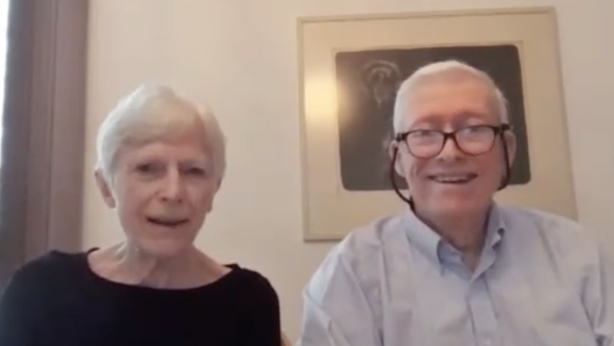Steelworkers take medical clinic they founded to court
This week’s edition of who is saying what about public health care is compiled by Pat Van Horne.
Steelworkers take medical clinic to court: clinic founded by union in the 1960s
“We were to be members of Group Health for the rest of our lives. Instead we were de-rostered,” said Mike Da Prat, president of USW Local 2251 in Sault Ste. Marie, where the Group Health Centre was created by union members’ contributions in 1963, before Canada’s medical plan existed, to The Toronto Star, September 7, 2024
Dental care program needs fixes, especially in rural Canada
“I think that’s a no-brainer to try to figure out where it’s being used and where it isn’t. . .It’s really disappointing for me. I get free dental care, woo-hoo, but it’s going to cost me gas money. It needs to be accessible for all people, not just people that live in urban centres,” said Susan Francis, who lives in Kindersley, SK, but has to go to Saskatoon for a dentist who’s signed on to the program, to CBC News, September 8, 2024
So you thought COVID was over? It isn’t, says journalist
“The subject of how to respond to a slow-burn pandemic remains taboo because most public health officials have already declared the emergency over. They’ve also stopped collecting critical data. COVID-19 deaths in Canada are not reported in a readily publicly-accessible fashion. And most of the media pretends that an immune-destabilizing virus that can harm the functioning of your organs, including your brain, has little more import than a benign cold.
As a consequence, authorities can’t now turn around and admit to the breadth of their mistake, let alone acknowledge the growing disorder in public health. Nor do they dare collect critical data documenting the scale of their errors including the relentless march of long COVID,” wrote Andrew Nikiforuk, award-winning journalist whose books and articles focus on epidemics, the energy industry and nature, The Tyee, September 3, 2024
Principles to pay for expensive rare-disease drugs
“The federal funds for Expensive Drugs for Rare Diseases (EDRD) are unique, given that healthcare services in Canada are traditionally provided by the provinces, with drug manufacturers having to navigate separate systems of the 13 provinces and territories . . . Drugs where high-quality evidence is available prior to market entry should be handled through the existing infrastructure with federal funds reserved for drugs where the development of high-quality evidence is not possible prior to market entry. . .
“Risk-sharing funding agreements should be in place until high-quality evidence showing clinically relevant outcomes is available; manufacturers should be willing to participate in meaningful evidence-generation with the understanding that if the results of post-market trials do not provide convincing evidence of value, funding will be withdrawn; the quality of the research plan should be used to prioritize candidates for federal funding; there must be meaningful public engagement in order to promote transparency in decision making and all parties have to accept the need for transparency,” wrote Canadian Health Coalition Board Member Joel Lexchin, MSC, MD, Professor Emeritus, School of Health Policy and Management, York University, Associate Professor, Faculty of Medicine, University of Toronto, and Sandra Sirrs, MD, FRCPC, Clinical Professor, Faculty of Medicine, University of British Columbia, in Longwoods Publishing, August, 2024
‘Warehousing’ people with brain injury, mental issues inhumane, says BC premier
“I watched them go downhill and die . . .It’s horrific and tragic and I think we can do better and I think we can do it in a way that’s humane and respectful. . . “I watched them go downhill and die,” he said. “It’s horrific and tragic and I think we can do better and I think we can do it in a way that’s humane and respectful. . .I think all of us see that there are people in the community who are not able to look after themselves, who are either being exploited, or who in turn are injuring or threatening the safety of other people,” said BC Premier David Eby, to The Globe and Mail, September 6, 2024
So, what if it isn’t an emergency, but you need medical assistance – now?
“Imagine a ‘hospital’ dedicated not to crises, but to . . . non-urgent needs. A place that brings together the people and facilities required to address those goals. A place where you’re automatically accepted upon arrival (just like with your local ER), where your medical information flows seamlessly between departments, and a team of experts collaborates on your overall health, not just isolated symptoms, to prioritize prevention as much as treatment. . . Sounds expensive, right? But consider this: How much are we already spending on our fragmented system? What’s the cost of redundancy, lack of integration and preventable illnesses?” said Dr. Tony Sanfilippo, cardiologist, professor of medicine; former associate dean at Queen’s University; author of The Doctors We Need: Imagining a New Path for Physician Recruitment, Training, and Support in The Globe and Mail, September 6, 2024
Support the Canadian Health Coalition



